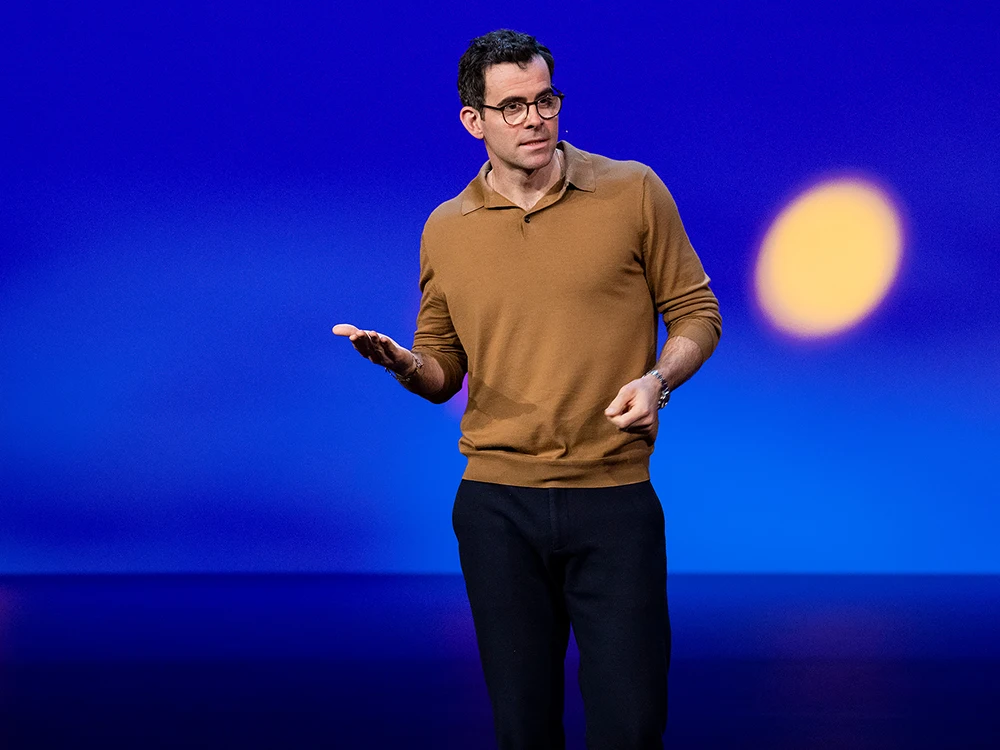Those that have the ability to control the flow of information, will be able to control everything. That is true, at least to whatever is put on the internet.
With an increasing number of people using the internet, more and more information is rushing in and out of people's devices. This data can come in the form of anything, ranging from images and videos, to documents, to location data, contact data, messages, calls, browsing data, and many many more.
Tech companies have long thrived because of this, feeding on the endless data people are generating for them.
But with the advent of the so-called web3, things are changing.
In Adam’s TED Talk, Adam Mosseri, the Head of Instagram, centered his discussion around what he believes to be "the greatest transfer of power from institutions to individuals in all time."
"The original promise of the internet, was to push power down into the hands of people, and to all of us."

Gatekeepers of the past, like music labels, news publications, TV networks and more, were losing power because of the internet.
People were given a lot more control. With smartphones and internet connectivity, anyone can create something for others' consumption.
But at the same time, the internet also gave birth to a new establishment, which include tech companies, that 'centralized' control. According to Mosseri, this was unexpected.
With web3 that is powered by blockchain, this will change, because the world will see "a dramatic shift in power away from platforms like [Instagram] and to a group of people I like to describe as creators.”
Mosseri predicted that the future of the internet-powered services, including social media platforms, tech companies will begin losing power.
It's only because of the rise of blockchain-powered technologies, that tech companies are losing grip, simply because blockchain is making the internet more 'decentralized'.
While creators and influencers have been around for years, Mosseri predicts that creators shall soon be able to have greater control over how they make money and how they interact with their audience.
This is something the internet's founding father, Tim Berners-Lee, envisioned.
In the world where platforms will act like platforms and no longer gatekeepers, Mosseri gave some examples on how the internet has changed various industries.
Basketball player LeBron James has more followers on Instagram than the Lakers do. Football star Cristiano Ronaldo is among the most followed Instagram influencer, and according to Mosseri, Ronaldo earns more money as an influencer than playing for Juventus.
"Star athletes are more relevant are more relevant than the teams they play for, which would have been unheard of 50 years ago (before the birth of the internet)" he said.
In Mosseri’s vision, he made an example about a hypothetical country-music singer named Lisa, who sells her fans subscriptions, not to Facebook or YouTube or TikTok, but to herself.
She issues tokens on a blockchain that give the bearer access to all her music wherever it lives online.
While the platforms still host the music, but they no longer control Lisa’s relationship with her subscribers. They can’t decide what data she sees, sell her subscribers’ data to third parties, or suddenly change policies to may change the way she earn her money. And if Lisa decides to stop using a platform—or if the platform itself kicks her off, or goes bankrupt, she doesn’t lose her subscriber list.
Because of this, there will be an evolution of the creator economy, that will create a bit of a stir to businesses and brands that wish to fit in this creator-focused future.
With the words coming from the Head of Instagram may be surprising.
For most of this time speaking to the public, Mosseri has been promoting Instagram and its various features, and how the platform can benefit its users and whatever businesses are involved with it.
But this time, he is painting a much bigger picture.
Blockchain is able to remove the need for trusting an intermediary. For example, it allows people to use cryptocurrency to store money, transfer funds or pay for something, without the need of a bank.
This time, blockchain is enabling creators to thrive, but without a social media platform.
What Mosseri is trying to say here is that, he predicts the rise of blockchain will allow creators to own their audience directly, allowing them to talk to subscribers and audience members across every social platform, but without being too dependent on the platform that helped them became popular in the first place.
People who wish to follow a creator, just need to follow that creator once, not once per platform.
Mosseri also pointed out to a future where creators are invested in the same way investors invest in startups, allowing individuals to raise capital and giving investors equity in their future success.
In other words, Mosseri's ambitious set of predictions, centered on the idea that creators and individuals will regain control and taking back the power that social platforms have building up over the past few decades.
" [...] I think this is actually a good thing," Mosseri said.
"No publishers can build a business on a platform that's too volatile, and no business should be entirely reliant on any one platform. The same is true for creators."
With blockchain shifting the power away from platforms to the people, "we'll have helped to realize the original promise of the internet."
With web3, even the most ordinary internet users can truly own their data. By storing in inside a blockchain, no single entity controls the data, preventing the data from being utilized and monetized by giant tech companies.